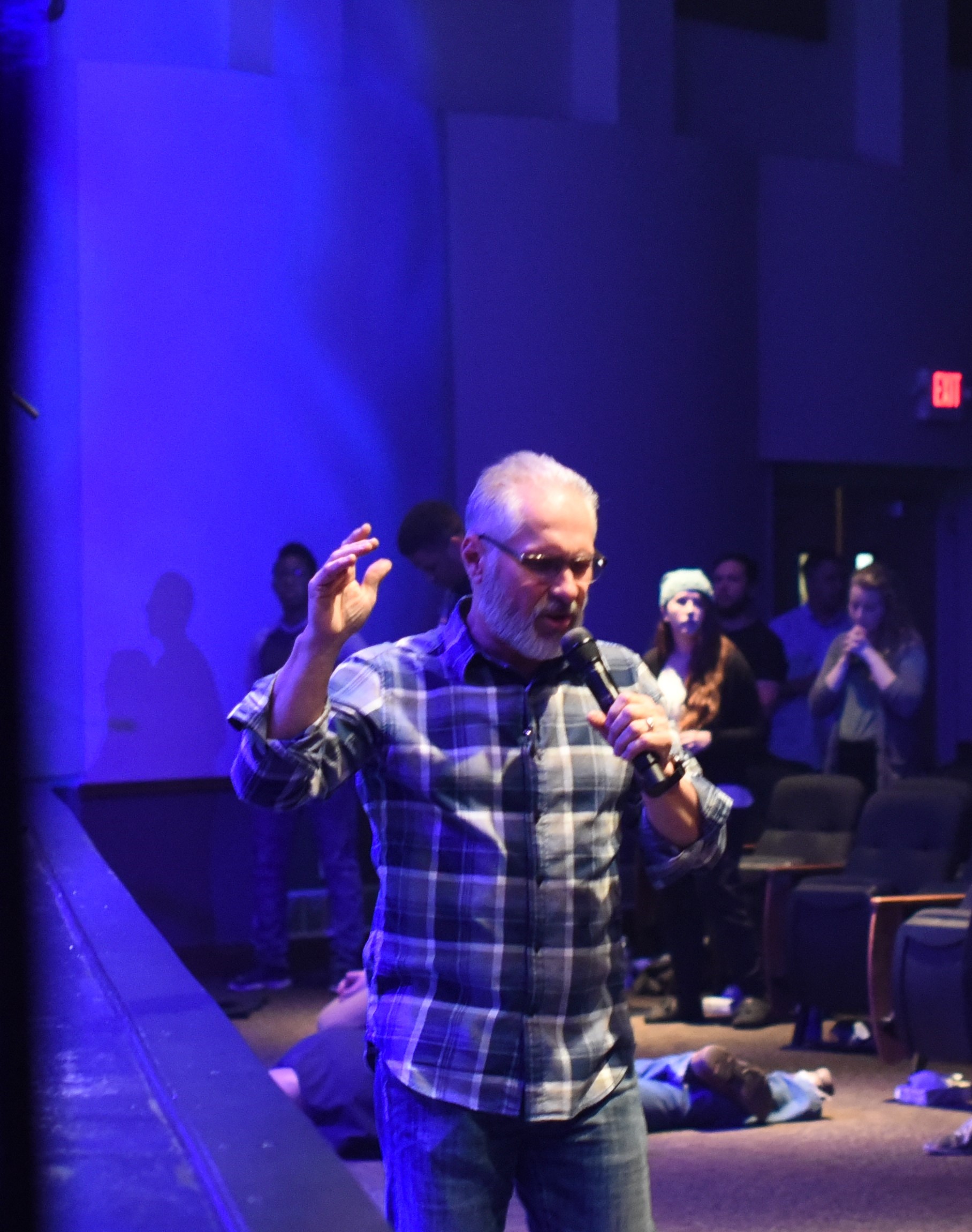
Pastor’s Blog 6.18.20
What happens to the urgency of evangelism when there is no real threat of someone dying in their sin or experiencing eternal judgment? What happens to the urgency to pray for souls when one does not believe a soul is in danger?
I was praying recently and I heard these words, “they will die in their sins”. I immediately went to John 8 where Jesus spoke these words and was prompted by the Holy Spirit to wake up to a new urgency for those who think they are secure, but in fact are under false security.
After Jesus rescued the woman caught in adultery he said:
John 8:10-11 TPT Until finally, Jesus was left alone with the woman still standing there in front of him. So he stood back up and said to her, “Dear woman, where are your accusers? Is there no one here to condemn you?”
Looking around, she replied, “I see no one, Lord.”
Jesus said, “Then I certainly don’t condemn you either. Go, and from now on, be free from a life of sin.”
As Pastor Greg Nangle has been saying: “Jesus said go and sin no more, not go and sin some more!”
Most of us older folk are blown away at the fact that in the last fifteen years the church has so freely changed the conditions of salvation from repentance and embracing the Lordship of Jesus in our daily lives, to just simply saying, “I believe”. This has occurred primarily because of the practice of proof-texting the word of God. What is meant by proof- texting? It’s when people take the scriptures and cut them out of context and end up changing their meaning altogether.
I began to see this fallacy back in the 80’s and 90’s in the charismatic movement concerning pet doctrines around the “prosperity and healing message.” I want to be doctrinally sound and have the integrity to rightly divide the word of truth. There are what I call “stand alone principles in the scripture and then there are truths that must be contextualized. “God is good, God is Holy, God is the most high God”, these are indisputable and stand alone.
“Jesus said go and sin no more, not go and sin some more!”
Let me show you an example of truths that need contextualized. The angel said to the Shepherds, “Peace on earth good will toward men”.
But then Jesus said:
Matthew 10:34 34 “Do not think that I came to bring peace on earth . I did not come to bring peace but a sword. NKJV
These messages seem to contradict each other as do many things in God’s word until you read the whole thought and context.
While we find the words that seem to say “only believe and you will be saved”, it takes more than simple acknowledgment, which is how most modernly define belief.
Romans 10:8-13
8 But what does it say? “The word is near you, in your mouth and in your heart” (that is, the word of faith which we preach):
9 that if you confess with your mouth the Lord Jesus and believe in your heart that God has raised Him from the dead, you will be saved.
10 For with the heart one believes unto righteousness, and with the mouth confession is made unto salvation.
11 For the Scripture says, “Whoever believes on Him will not be put to shame.”
12 For there is no distinction between Jew and Greek, for the same Lord over all is rich to all who call upon Him.
13 For “whoever calls on the name of the LORD shall be saved.” NKJV
Now let’s look at this verse in the Amplified Bible translation which actually defines the word believe…
Romans 10:8-11
8 But what does it say? The Word (God’s message in Christ) is near you, on your lips and in your heart; that is, the Word (the message, the basis and object) of faith which we preach, [Deut 30:14.]
9 Because if you acknowledge and confess with your lips that Jesus is Lord and in your heart believe (adhere to, trust in, and rely on the truth) that God raised Him from the dead, you will be saved.
10 For with the heart a person believes (adheres to, trusts in, and relies on Christ) and so is justified (declared righteous, acceptable to God), and with the mouth he confesses (declares openly and speaks out freely his faith) and confirms [his] salvation.
11 The Scripture says, No man who believes in Him [who adheres to, relies on, and trusts in Him] will [ever] be put to shame or be disappointed. [Ps 34:22; Isa 28:16; 49:23; Jer 17:7.] AMP
So we must adhere to (or obey) Jesus’ teachings to be saved not just acknowledge them.
Most public funerals today are a total mockery of the truth of eternal life. I will not preach someone into heaven just to comfort their grieving loved ones, but it happens several times a day by Pastors in funeral services all over this community. Who wants to believe their loved one is in the devil’s hell?
Jesus called out religious leaders in John 8 and told them they were the devil’s sons and not God’s sons! He told them they would die in their sins!
I don’t have a “dog in this hunt.” I am not concerned about being right for my sake. I am concerned with those who have been falsely secured with a half truth from a half presentation of a gospel message. There is a reason Apostles were tasked with judging doctrine. Evangelists seem the most prone to minimizing the requirements of salvation and I think their gift of preaching good news sometimes overshadows the truth of the message of repentance from sin and dead works.
I have locked horns with many Evangelists and their desire just to get a person to “pray a prayer” and then telling them “your OK”, when it is obvious that the person (that just prayed) had no true commitment to the Lord. A prayer can save you but a prayer may not save you. It depends on the heart of the person, not words repeated by a person. I am typically very clear on the presentation of the Gospel that there is an expectation of repentance from sin by God for their acceptance by God.
It pays to read the whole thought when reading the Bible, so before you repeat a promise, check the context and make sure you are not creating your own Gospel.
Remember a deceived person does not know that they are deceived!
Be blessed!
- Date - June 18, 2020


